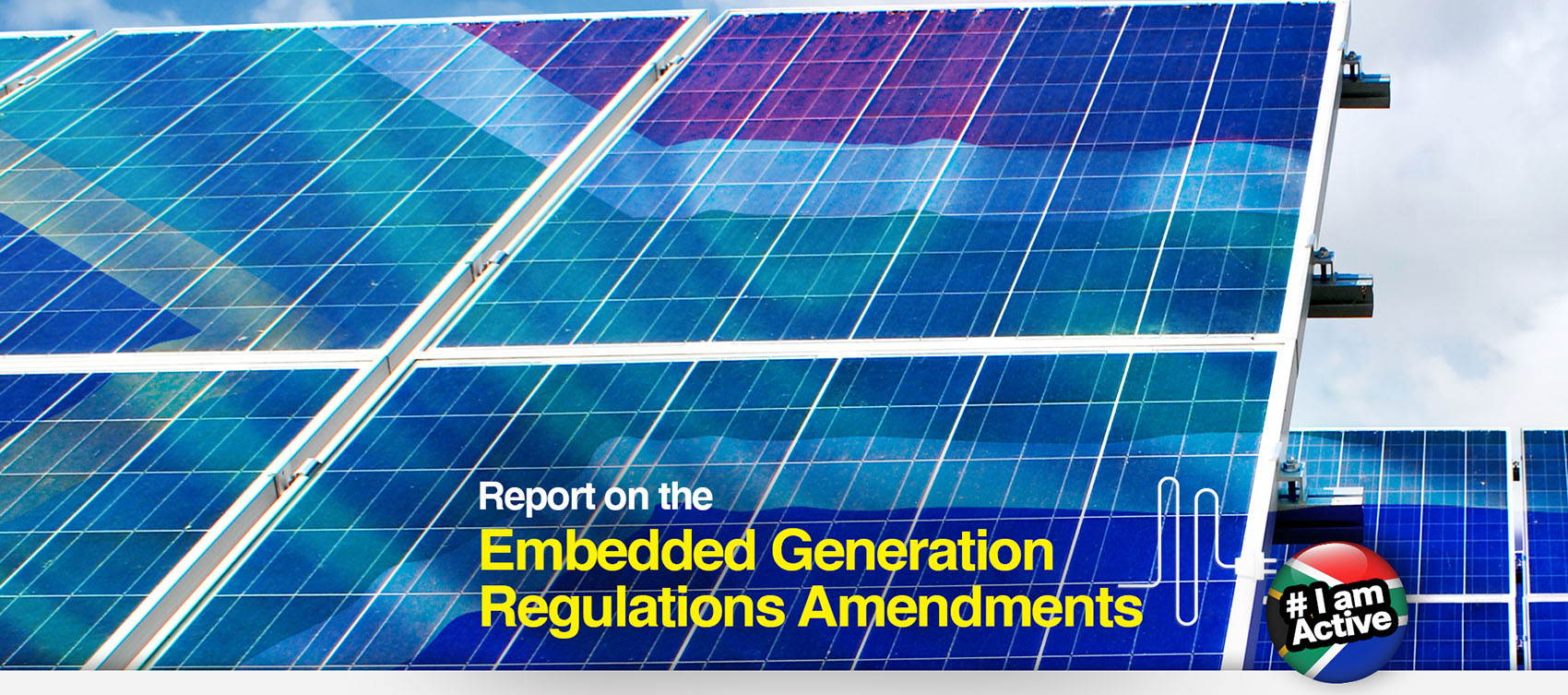Minister Gwede Mantashe invites public comment, input or objection to the draft amendments to the Electricity Regulation Act.
The amendments propose amendments to the Licensing Exemption and Registration Notice (embedded generation);
- registration with the regulator is required for anything below 10MW
- a licence is required for capacity above 10MW
- exemption of certain requirements.
16179 participants (closed 23 May 2021)


[CLOSED} Have your say – shape the outcome.

SUMMARY
Minister of Mineral Resources and Energy Gwede Mantashe has published new embedded generation regulations which could help businesses and private individuals reduce their reliance on Eskom.
In the regulations, the government has proposed lifting the threshold for embedded generation capacity from 1MW to 10MW.
Currently, the Electricity Regulation Act requires entities who want to build power plants greater than 1MW to obtain a licence from the National Energy Regulator of South Africa (Nersa).
The new regulations state these entities will no longer have to obtain a licence for generation capacity up to 10MW. They will still need to register with Nersa, but it’s not clear exactly how this process will differ from the current regime.
Professor Anton Eberhard, who directs the Power Futures Lab at UCT’s Graduate School of Business, told Reuters the new threshold was not high enough and recommended that the threshold be raised to 50MW. He pointed out the new regulations did not apply to projects aimed at adding capacity to the transmission grid.
“The minister appears to have reluctantly taken a small step forward, but failed to recognise the profound innovations in distributed energy resources and how the regulatory system needs to adapt,” Eberhard said.
ENABLING YOU TO SHAPE GOVERNMENT POLICY
Dear South Africa is a legally recognised and constitutionally protected non-profit platform which enables the public to co-shape all government policies, amendments and proposals. We’ve run many successful campaigns and have amassed a considerably large active participant network of over 750,000 individuals across the country and beyond.
We do not run petitions. We run legally recognised public participation processes which allow citizens to co-form policy at all levels of governance. Whereas petitions, even if they contain thousands of signatures, are considered as a single submission by government, our process ensures that each comment made through dearsouthafrica.co.za is recognised and counted as an individual submission by government.
Furthermore, we keep an accurate record of all participation and produce a publicly available report at the end of each project. This report forms the foundation of a sound legal case should the necessity to challenge the decision arise.
Participation costs you NOTHING, and is so easy and quick to do through the platform that you really have no excuse not to help shape policy BEFORE it becomes law. Legally challenging implemented law is costly and rarely successful. Prevention is better than cure.
Participation in decision-making processes means a possibility for citizens, civil society organisations and other interested parties to influence the development of policies and laws which affect them. We’ve made it easy for you as a responsible citizen of South Africa, to influence government decisions before they are made.

